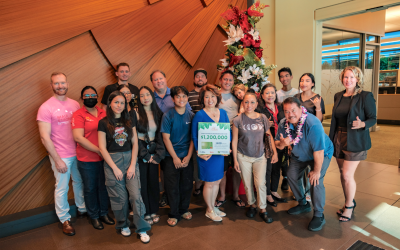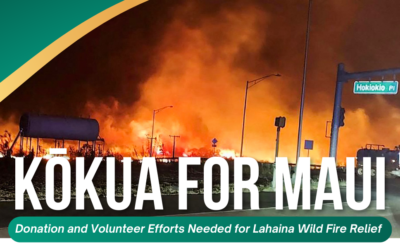Winter’s OVER!!
As the weather moves from warm to hot, there are a few things Restaurants should look out for.
You should always make sure all foods are received and held at the proper temperatures, but there are precautions that should not be overlooked or shortcutted.
Potentially Hazardous Foods -PHF- are vulnerable to time and temperature abuse. 2 common fishes here in Hawaii – Ahi and Mahi – develop a high level of Histamines when they are in the Temperature Danger Zone for a period of time. A guest that is susceptible to Histamines may suffer an illness, while their fellow diners may not.
Regarding Shellfish – remember the old saying to not eat shellfish in months with no ‘R’? The warmer water of the summertime allows certain bacteria and algae to flourish. Modern cultivation has largely eliminated this issue, but with global warming and warming waters, it may still be a risk
When receiving your foods – especially seafood and shellfish – check the receiving temperature either surface or internal. You should be looking for 41deg. Most deliveries come in refrigerated trucks or packed in ice and Styrofoam boxes. Watch out for deliveries that are late or get to you later than before lunch. Delivery trucks are loaded and are on the road early, with a chance your seafood is exposed to a variety of temperatures. In your restaurant, make sure any PHF are not stored in refrigeration that is not keeping foods at 41 deg.
Flies and filth flies are active year-round here in paradise, but more so when the weather heats up.
Check your screens, doors and any pest control devices. Make sure they are all working and seal properly. I did an audit today where a fly landed right on the food. Automatic High Critical Violation! Keep trash bin areas and cans cleaned and covered. Don’t invite them in!!
Filth Flies lay their eggs in the slime that builds up in the floor drains, soda areas and drains and rotting produce. Frequent cleaning is the best prevention, and check your produce that are stored in dry storage – look for any rotted onions, potatoes, etc.
Keeping a focus on these and ALL food safety steps will help you get thru the summer with no sweat!

To learn more detail about Food Safety procedures, or to set up an independent discounted audit of your facility, please contact
Peter Bellisario of PeterBFoodSafety.com at peter@peterbfoodsafety.com or (808) 491-7766. Check out my website – www.PeterBFoodsafety.com





0 Comments